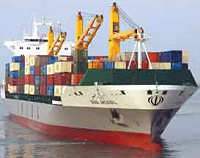 The common wisdom is that the Directorate of Defense Trade Controls (“DDTC”) has a “see-through” rule for exports of defense articles, but that the Bureau of Industry and Security (“BIS”) does not have a see-through rule for exports of dual use items regulated by it. A “see-through” rule will impose export controls on an item if one of its parts is export controlled.
The common wisdom is that the Directorate of Defense Trade Controls (“DDTC”) has a “see-through” rule for exports of defense articles, but that the Bureau of Industry and Security (“BIS”) does not have a see-through rule for exports of dual use items regulated by it. A “see-through” rule will impose export controls on an item if one of its parts is export controlled.
Well, as the recently released Settlement Agreement with Nalco Company illustrates, it is not strictly the case that BIS doesn’t have “see-through” rules. Nalco agreed to a $115,000 fine for thirteen unlicensed exports of water hardness testing kits to the Bahamas, the Dominican Republican, and Angola. One of the reagents in those kits contained triethanolamine, a chemical weapons precursor classified as ECCN 1C350.
The reason for the “see-through” rule here can be found in the ECCN’s “License Requrement Notes” which indicate that “mixtures” (as opposed to “compounds”) with specified percentages of the listed chemical weapons precursor are controlled by 1C350. Although there is no definition of “compound” or “mixture” in the Export Administration Regulations, it seems reasonable to assume that a “compound” refers to a new substance created by a chemical reaction of the component compounds, whereas a “mixture” refers to a separable commingling of various components. In layman’s (and somewhat simplistic) terms, bread is a “compound” of flour, yeast and water and salad dressing is a “mixture” of oil and vinegar. In the case of triethanolamine, the relevant percentage is 30 percent.
Mixtures containing 30 percent or more of chemical weapons precursors that are used as reagents in testing kits are excluded from 1C350 but are instead classified under ECCN 1C395. Items classified under ECCN IC395 require licenses to any country not a member of the Chemical Weapons Convention. Those countries are listed on Supplement 2 to Part 745 of the EAR and, needless to say, do not include the Bahamas, the Dominican Republic and Angola, the destinations for the exports by Nalco.

 Posted by
Posted by  Category:
Category: 

 Yesterday the Treasury Department’s Office of Foreign Assets Control (“OFAC”)
Yesterday the Treasury Department’s Office of Foreign Assets Control (“OFAC”)  A federal grand jury in the District of Columbia indicted an Indian national, Siddabasappa Suresh, and an Indian company,
A federal grand jury in the District of Columbia indicted an Indian national, Siddabasappa Suresh, and an Indian company,  Last week the Office of Foreign Assets Control (“OFAC”) released its
Last week the Office of Foreign Assets Control (“OFAC”) released its  According to
According to 

